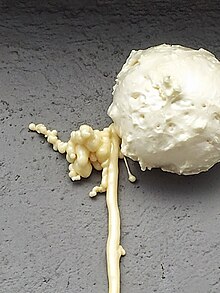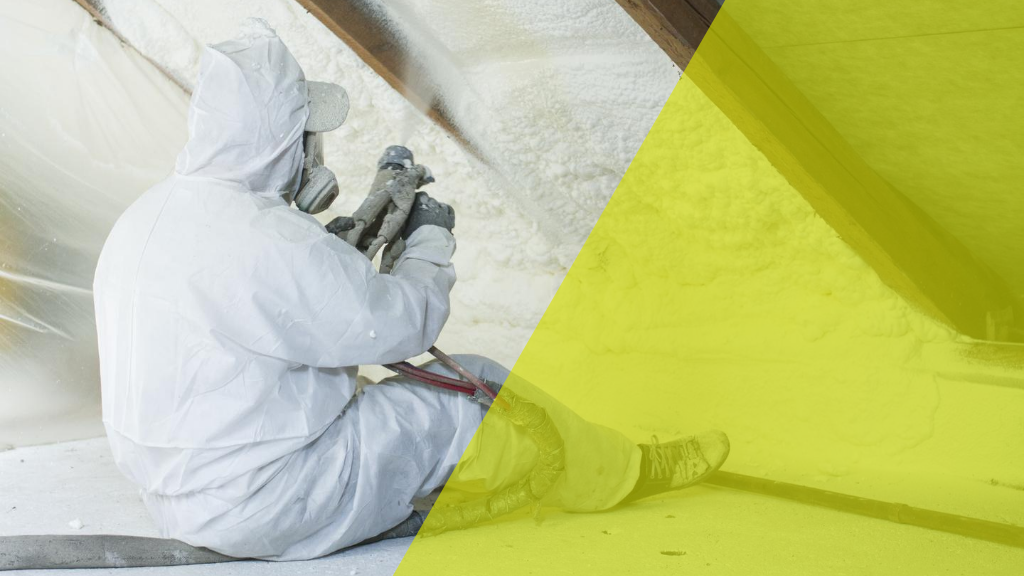Frequently Asked Questions About Spray Foam Installation and Use
Frequently Asked Questions About Spray Foam Installation and Use
Blog Article
Spray Foam: The Ultimate Service for Air Sealing and Insulation
Spray foam insulation has actually arised as a leading solution for effective air securing and thermal insulation, using a distinct combination of homes that set it apart from conventional approaches. Comprehending the full range of its advantages, installment processes, and comparisons with other insulation kinds is essential for making educated decisions.
What Is Spray Foam?
Spray foam is a flexible insulation material that integrates the concepts of air securing and thermal resistance to enhance energy efficiency in buildings. Composed mostly of polyurethane or other similar substances, spray foam is applied as a fluid that expands upon contact with surface areas, producing a solid, continuous layer of insulation. This special property enables it to fill up gaps, cracks, and voids that standard insulation materials might overlook, providing a premium air seal.
There are two major sorts of spray foam: open-cell and closed-cell. Open-cell spray foam is lighter and extra flexible, using outstanding audio absorption and a reduced R-value per inch - Spray Foam. On the other hand, closed-cell spray foam is denser, supplying a greater R-value, moisture resistance, and included structural honesty to building parts
The application procedure commonly entails specific devices, ensuring a seamless application that complies with numerous substrates, including metal, wood, and concrete. This flexibility makes spray foam appropriate for both brand-new constructions and retrofitting existing frameworks. Its capability to develop a closed barrier significantly adds to minimizing energy usage and boosting interior air top quality, thereby making it a preferred choice amongst homeowners and builders alike.
Benefits of Spray Foam Insulation
One of the most substantial advantages of spray foam insulation is its exceptional ability to produce a continuous air barrier, which properly minimizes energy loss. Unlike typical insulation products, spray foam increases to fill spaces and splits, making certain that air leak is considerably decreased. This particular not only boosts energy effectiveness however also leads to decrease utility costs in time.
Additionally, spray foam insulation gives exceptional thermal resistance, contributing to a more steady indoor setting. Its high R-value per inch allows for reliable insulation in constrained rooms, making it excellent for attic rooms, walls, and crawl areas. The moisture-resistant properties of spray foam help prevent mold and mildew and mildew development, promoting much healthier living conditions.
Another critical benefit of spray foam insulation is its sound-dampening high qualities (Spray Foam). It efficiently decreases sound transmission between rooms, developing a quieter and much more comfy home setting. The longevity of spray foam likewise stands out, as it does not droop or clear up with time, preserving its efficiency throughout its lifespan
Just How Spray Foam Works
Recognizing exactly how spray foam insulation functions is essential for valuing its effectiveness in air sealing and thermal resistance. Spray foam insulation contains two primary parts: isocyanate and polyol material. When these parts are mixed, they go through a chemical reaction that causes the material to increase rapidly, producing a thick foam that fills cavities, gaps, and cracks.
As the foam increases, it abides by surface areas, forming an impermeable seal that dramatically decreases air infiltration. This particular makes spray foam insulation highly reliable at preventing drafts and moisture infiltration, which can lead to energy loss and damages with time. Additionally, the closed-cell variation of spray foam uses exceptional thermal resistance because of its stiff framework, efficiently decreasing heat transfer.
The distinct homes of spray foam enable it to adapt uneven surface areas, making sure detailed insurance coverage and a seamless barrier. Consequently, spray foam insulation not only improves energy efficiency however additionally adds to boosted indoor air top quality by minimizing the build-up of contaminants and irritants. Eventually, comprehending the mechanics behind spray foam highlights its function as a remarkable choice for insulation and air sealing in both residential and business applications.
Installation Refine Overview

Before installation, the space needs to be sufficiently cleansed and prepped, guaranteeing that surface areas are totally free from dirt, debris, and moisture. This step is critical since contaminants can compromise bond and total efficiency. As soon as the area is prepared, the application entails blending both components of the spray foam, which broadens upon call and fills up voids effectively.
Trained specialists must perform the installment, making use of specific devices to guarantee consistent coverage and ideal density. Safety safety check these guys out measures, consisting of using protective equipment and making certain appropriate ventilation, are imperative during this process. After application, the foam generally cures promptly, creating a solid obstacle that enhances energy performance.
Contrasting Spray Foam to Conventional Insulation
When assessing insulation choices, spray foam insulation stands out in comparison to standard products such have a peek at this site as fiberglass and cellulose. Unlike fiberglass and cellulose, which can enable air infiltration, spray foam increases upon application, filling holes and gaps to develop an impermeable seal.
In addition, spray foam gives a greater R-value per inch than standard insulation types, offering more effective thermal resistance in a thinner profile. This characteristic is especially useful in rooms with restricted tooth cavity depth. Moreover, spray foam is immune to wetness and mold and mildew development, which can be a significant worry about cellulose and fiberglass, especially in moist environments.
Nevertheless, spray foam insulation usually carries a higher in advance expense than its typical counterparts. Property owners should weigh this first investment versus long-lasting energy financial savings and efficiency advantages. Eventually, while both insulation types serve their purpose, spray foam becomes an extra sophisticated remedy for modern-day insulation demands, especially in regards to air securing and thermal effectiveness.

Conclusion
In summary, spray foam insulation represents an extremely effective solution for achieving ideal air sealing and thermal resistance. Its unique buildings, consisting of moisture resistance and noise dampening, make it appropriate for numerous applications in both brand-new constructions and retrofitting jobs (Spray Foam). The first costs may be higher contrasted to traditional insulation products, the lasting advantages, such as considerable energy financial savings and improved interior air quality, validate the investment and emphasize its value in modern structure practices.
Spray foam insulation has actually arised as a leading remedy for effective air sealing and thermal insulation, supplying an one-of-a-kind mix of homes that establish it apart from conventional techniques.Spray foam is a flexible insulation product that integrates the concepts of air sealing and thermal resistance to boost power efficiency in buildings.When reviewing insulation choices, spray foam insulation stands out in comparison to traditional materials such as fiberglass and cellulose. Eventually, while both insulation kinds offer their purpose, spray foam emerges as an extra sophisticated option for modern insulation demands, especially in terms official site of air securing and thermal performance.
In summary, spray foam insulation stands for a highly reliable option for accomplishing optimal air sealing and thermal resistance.
Report this page